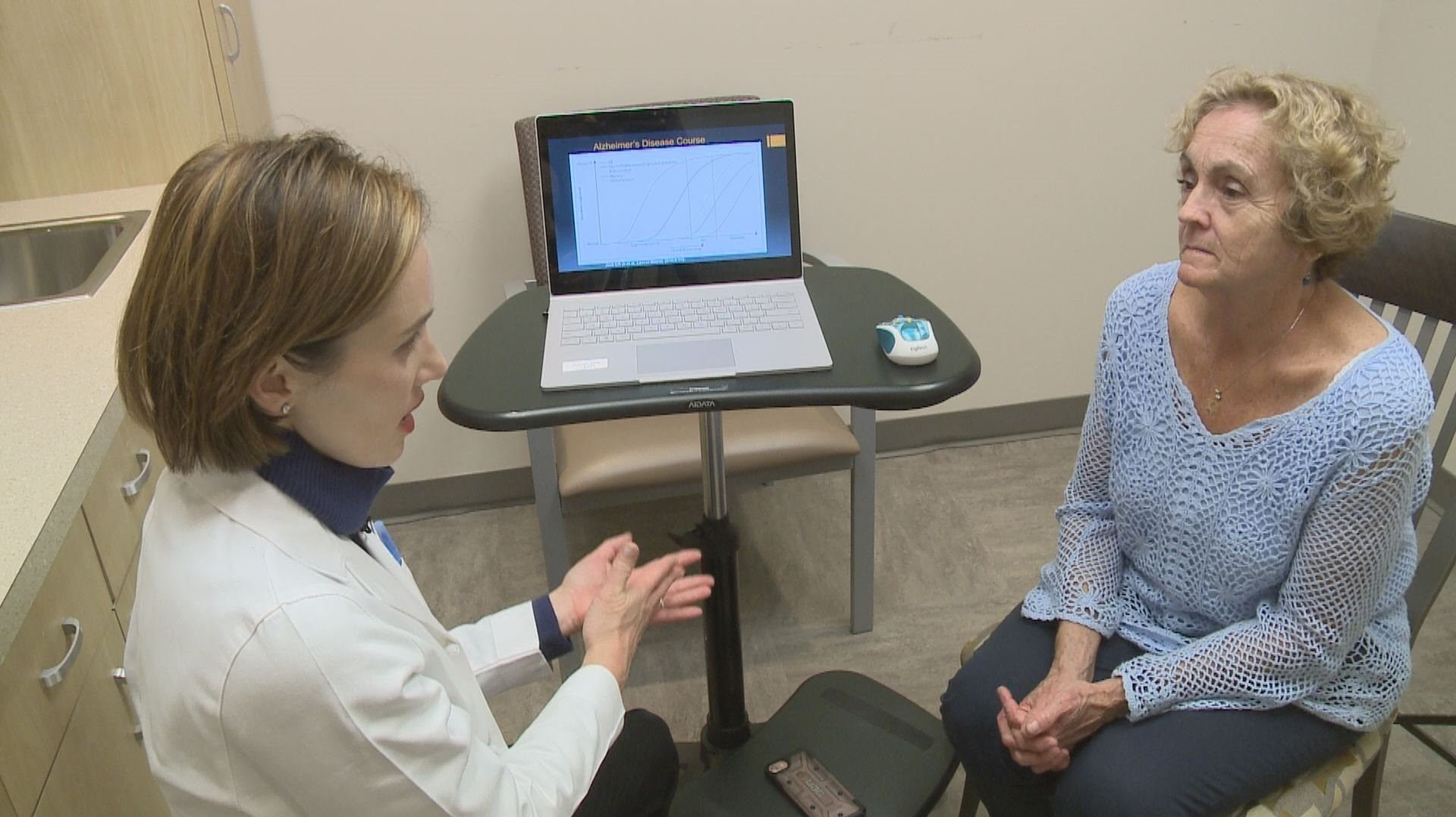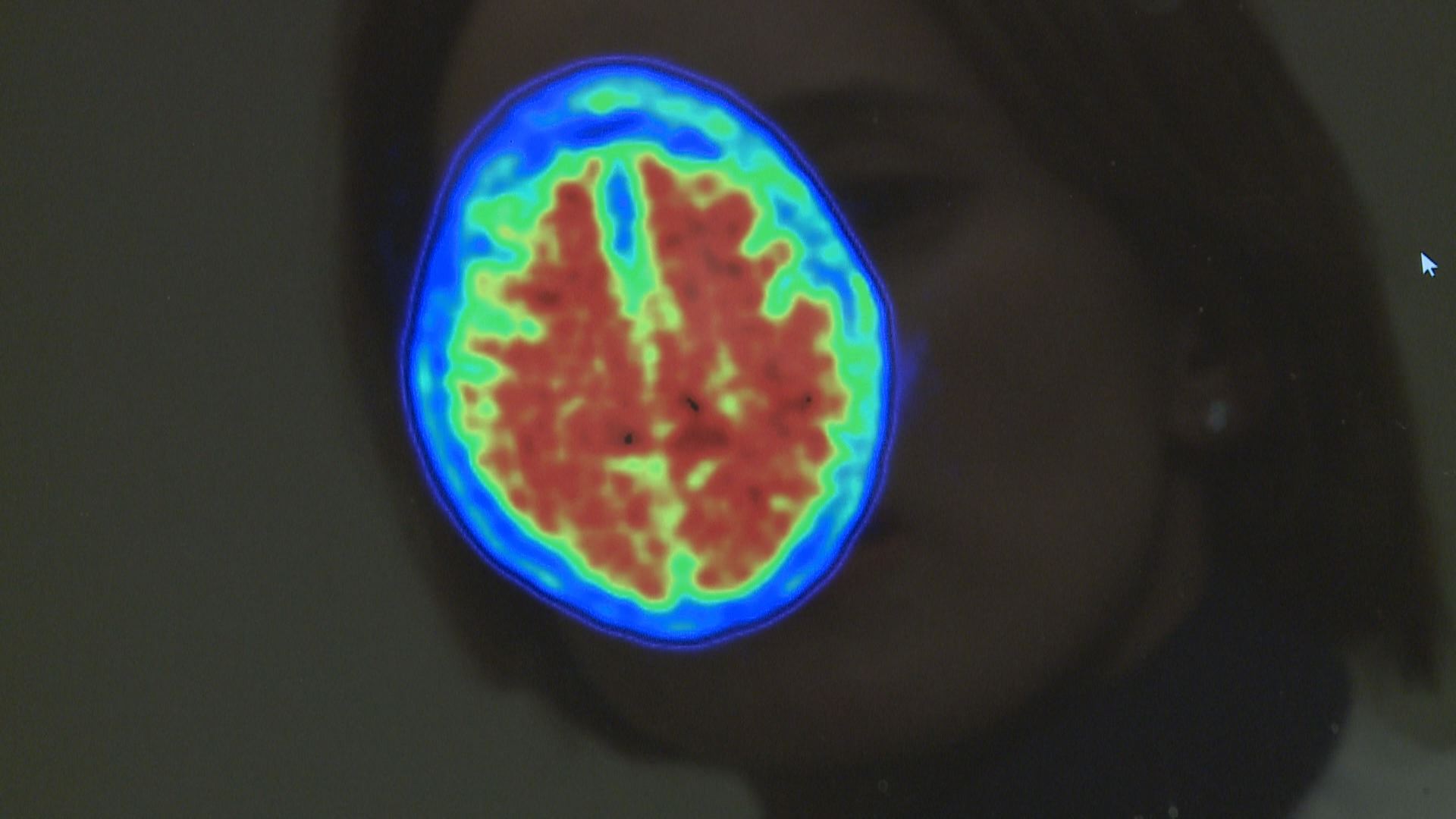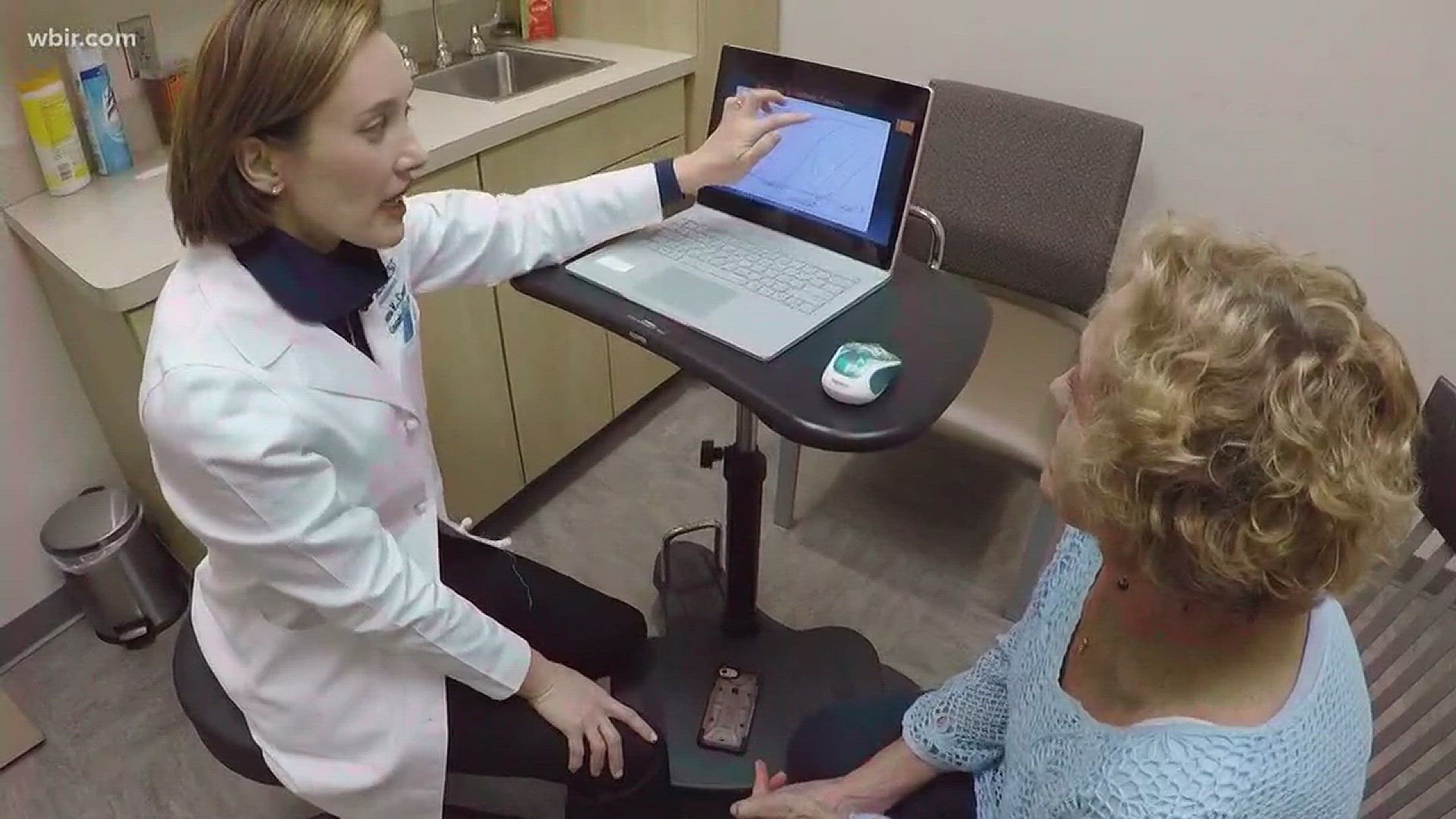We first met Jenny Coburn in July when a test revealed she has evidence of Alzheimer’s disease. She’s one of thousands of people across the country participating in a national study called IDEAS, short for Imaging Demetia Evidence for Amyloid Scanning.
Jenny’s specialist is optimistic because they found the signs early, and says lifestyle changes could keep her from progressing.
“Mrs. Coburn, it’s good to see you,” Dr. Monica Crane at Genesis Neuroscience Clinic said when Jenny went in recently for a follow-up exam. “We’re here to talk about your results.”

Test results can be a tough conversation.
“It’s hard because you don’t think these things are going to happen to you,” Jenny said.
Jenny, a retired nurse, is now the patient. She’s been proactively seeing Crane, a dementia & geriatric specialist, for several years.
“The whole idea is to diagnose someone before they have symptoms or hardly any symptoms and that’s where you’re at,” Crane said to Jenny.
In July, Jenny voluntarily had a brain amyloid PET scan and the imaging revealed amyloid plaque. It’s a common feature of Alzheimer’s.
“The red line represents the plaque burden,” Crane explained, pointing to the amyloid scan. “The amount of plaque that you have in your brain.”

The results can be hard to hear and see, but Crane doesn't want Jenny to be discouraged.
“You’re ahead of the game. Just because you have plaque doesn't mean you’re dementing,” Crane explained. “You're still absolutely here and you’re a whole person.”
For Jenny, it’s reassuring.
“It gives me peace,” she said. “To know that I have it, but right now it’s not active.”
Crane and fellow dementia experts believe about one-third of Alzheimer’s cases are preventable diseases.
“Like being sedentary, having high blood pressure, high cholesterol, pre-diabetes, sleep apnea. So, trying to really fight those risk factors and stay right here is where we want everyone to be,” Crane said.
Early detection is key and requires lifestyle changes.
“She told me I had to give up Cokes,” Jenny said. “That sugar is just not good for you.”
Jenny is also increasing exercise to six days a week.
“Keep it up. Keep cutting out the soda and continue your incredible exercise and I think you’ll do exceptionally well,” Crane said, encouraging Jenny. “You were brave enough to actually get the scan. I think that’s the inspiring story is that you can take control. And, I do believe you won’t progress because you’ve made so many life changes.”
Jenny’s next appointment is in August. We’ll continue to follow her journey.
Crane has almost a hundred patients participating in the IDEAS study at her Genesis Neuroscience Clinic.

